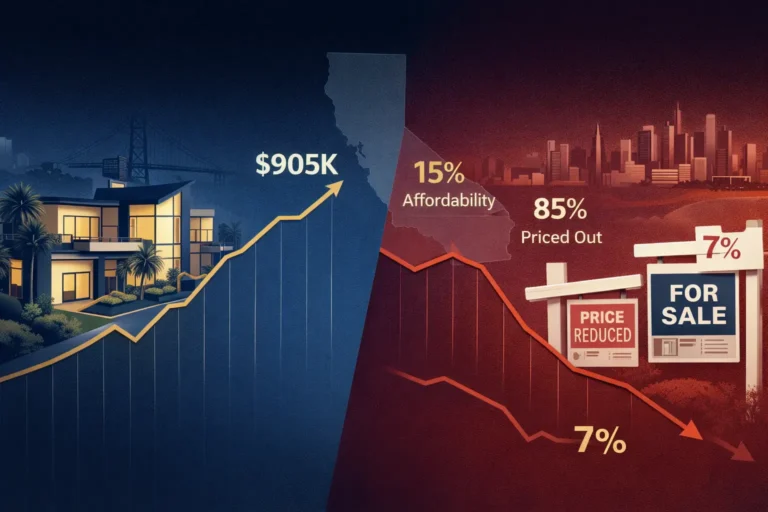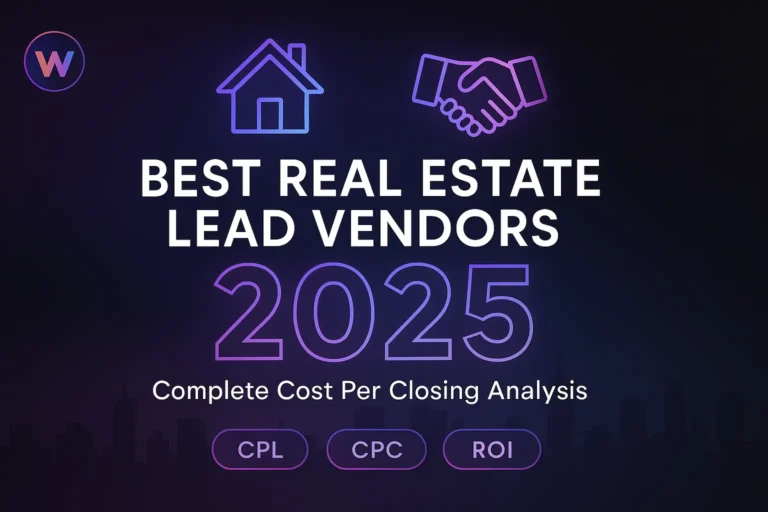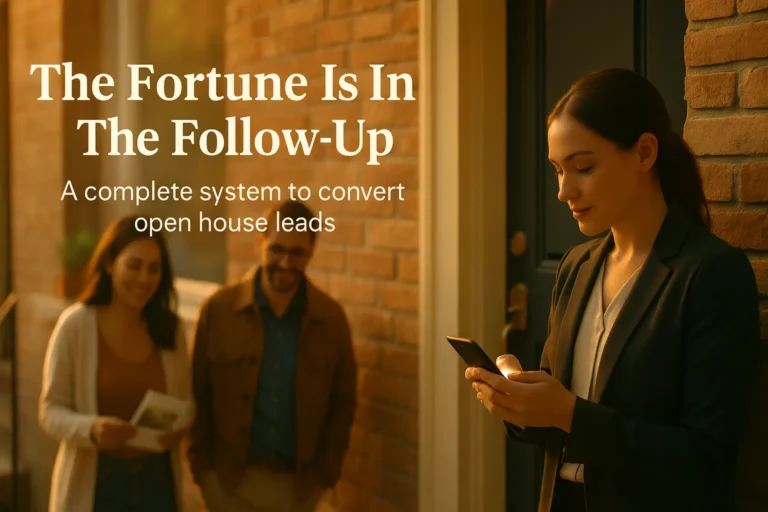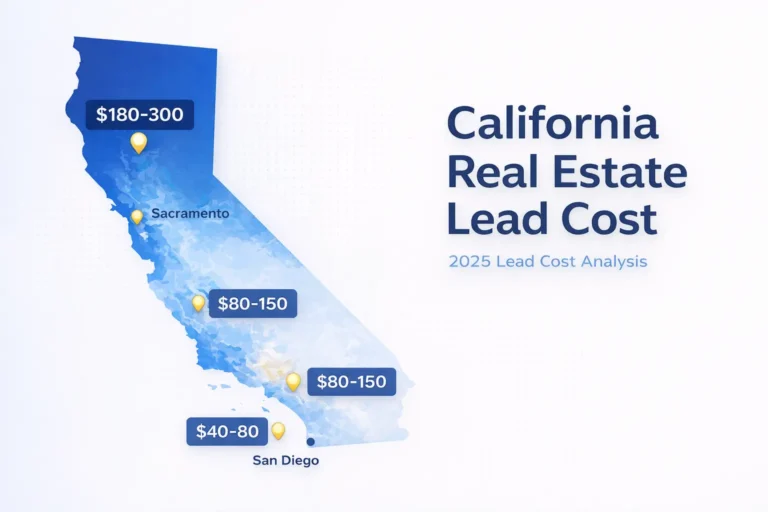How Buyer Agents Are Winning in 2025: 7 Proven Strategies to Thrive After the NAR
How to transform industry upheaval into your biggest competitive advantage
The real estate world changed forever on August 17, 2024. If you’re a buyer agent reading this, you’ve likely felt the ground shift beneath your feet. The NAR settlement didn’t just change rules; it rewrote the entire playbook for how we serve our clients and earn our living.
But here’s what I’ve learned after working with hundreds of agents through this transition: the agents who are thriving right now aren’t the ones who were naturally gifted at sales. They’re the ones who embraced the change, got crystal clear on their value, and learned to communicate it authentically.
This isn’t another generic “adapt or die” article. This is your practical roadmap to not just surviving, but building the most successful buyer agency practice you’ve ever had. I’m going to show you exactly how seven top-performing agents transformed their businesses, increased their income, and actually started enjoying their work more than ever before.
The Real Story Behind the NAR Settlement (And Why It’s Actually Good News)
Let’s be honest about what really happened. The old system was broken, and we all knew it. Buyers didn’t understand who was paying us or why. Sellers were frustrated by opaque commission structures. And agents? We were caught in the middle, trying to serve everyone while nobody really understood our value.
The settlement fixed three critical problems:
Problem 1: The Invisible Agent Dilemma Before August 2024, buyers often viewed us as “free” services provided by the seller. This created an unhealthy dynamic where our value was either taken for granted or completely misunderstood.
Problem 2: The Commission Confusion The old MLS system created artificial price floors and prevented true market competition. Buyers deserved to understand exactly what they were paying for and why.
Problem 3: The Value Articulation Gap Without mandatory written agreements, many agents never had to clearly explain their services. This left both agents and clients operating with unclear expectations.
Here’s the breakthrough insight: every challenge the settlement created is actually an opportunity to build stronger, more profitable client relationships.
The 7 Marketing Strategies That Are Actually Working Right Now
Strategy 1: Master the Art of Value Storytelling (Not Just Value Propositions)
Forget everything you learned about elevator pitches. In 2025, successful buyer agents don’t recite value propositions; they tell value stories.
Sarah Chen, a top-performing agent in Seattle, increased her conversion rate by 340% with this simple shift. Instead of saying “I provide comprehensive buyer representation services,” she now says:
“Last month, I saved my client Jennifer $47,000 on her dream home. Not through aggressive negotiation, but by spotting foundation issues during our walkthrough that the inspector missed. Jennifer was about to waive inspection contingencies in this competitive market. That one observation paid for my services 15 times over.”
The Value Story Formula That Works:
- Specific Outcome: Always use real numbers and concrete results
- Relatable Client: Match the story to your prospect’s situation
- Unique Insight: Highlight expertise that others missed
- Clear Connection: Link the story directly to your compensation
Pro Tip: Develop 5-7 value stories covering different scenarios (first-time buyers, competitive markets, problem properties, etc.). Practice them until they feel natural, not rehearsed.
🔑 Ready to own the post-NAR market?
Grab the free Buyer-Agent Marketing Checklist (2025) + editable Fee-Menu template 👉 Download Now
Strategy 2: The Transparent Compensation Revolution
The agents making the most money right now aren’t hiding their fees; they’re showcasing them with pride. Michael Rodriguez in Austin saw his average commission increase by 23% after implementing what he calls “Compensation Confidence.”
The Compensation Menu Approach:
Essential Package: $8,000 flat fee
- Property search and showing coordination
- Offer preparation and negotiation
- Contract management through closing
Professional Package: 2.5% of purchase price
- Everything in Essential plus
- Detailed market analysis and property evaluation
- Seller concession negotiation strategy
- Post-closing support for 90 days
Concierge Package: 3% of purchase price
- Everything in Professional plus
- Pre-market property access
- Investment analysis and rental projections
- Ongoing market monitoring for future opportunities
Why This Works: Choice creates psychological ownership. When clients choose their service level, they’re invested in the relationship from day one.
Strategy 3: Educational Content That Actually Converts
Most agents create content that showcases properties. The highest earners create content that showcases expertise.
Lisa Park built her buyer agent practice from zero to $2.3 million in gross commission income in 18 months using what she calls “Problem-Solution Content Marketing.”
Her Weekly Content Calendar:
Monday: Market Monday (What this week’s data means for buyers) Wednesday: Wisdom Wednesday (Deep dive into one aspect of home buying) Friday: Feature Friday (Property analysis with educational commentary)
Example of Problem-Solution Content:
Title: “Why Your Pre-Approval Letter Might Actually Hurt You (And How to Fix It)”
Content: “I just lost three offers for my client because their pre-approval letter was working against them. Here’s what happened and how we fixed it…”
The Content That Converts Formula:
- Hook with a Problem: Start with a real challenge your audience faces
- Share the Solution: Provide actionable advice they can use immediately
- Demonstrate Expertise: Show your unique insight or approach
- Soft Call-to-Action: Invite them to learn more or schedule a consultation
Strategy 4: The Digital Authority Strategy
Building digital authority isn’t about having perfect social media posts. It’s about being consistently helpful in the places your ideal clients spend time.
Platform-Specific Strategies That Work:
Instagram: Behind-the-scenes content showing your expertise in action
- Stories of problem-solving during transactions
- Quick tips and market insights
- Client success celebrations (with permission)
LinkedIn: Professional insights and industry commentary
- Market analysis with business implications
- Home buying strategy for professionals
- Networking with referral partners
YouTube: Educational deep-dives and neighborhood expertise
- Detailed home buying process walkthroughs
- Neighborhood tours with insider insights
- Market trend analysis and predictions
Facebook: Community engagement and local expertise
- Local market updates and community news
- Home buying tips for your specific area
- Live Q&A sessions about the buying process
The Authority Building Timeline:
- Month 1-2: Establish consistent posting schedule and voice
- Month 3-4: Begin engaging with local community groups and potential referral partners
- Month 5-6: Launch more ambitious content (video series, live events)
- Month 7+: Leverage your growing authority for speaking opportunities and partnerships
Strategy 5: The Consultation Transformation
The buyer consultation is now the most important meeting in your entire sales process. It’s where you transform from a commodity service provider into a trusted advisor.
The New Consultation Structure:
Phase 1: Discovery (20 minutes)
- Personal situation and timeline
- Previous home buying experience
- Specific concerns or challenges
- Financial comfort zone and goals
Phase 2: Education (25 minutes)
- Current market conditions specific to their needs
- Step-by-step buying process explanation
- Common challenges and how you address them
- Your track record with similar clients
Phase 3: Service Presentation (15 minutes)
- Detailed explanation of your services
- Compensation options and value justification
- Client testimonials and success stories
- Next steps and agreement review
Phase 4: Agreement and Commitment (10 minutes)
- Line-by-line agreement review
- Questions and concerns addressed
- Signature and relationship formalization
- Immediate next steps scheduled
Consultation Success Metrics to Track:
- Consultation-to-agreement conversion rate (target: 75%+)
- Average time from consultation to first property showing
- Client satisfaction scores after consultation
- Referral rate from consultation attendees who don’t sign
Strategy 6: Hyperlocal Domination Strategy
The agents earning the highest commissions aren’t trying to serve everyone everywhere. They’re becoming the undisputed expert in specific neighborhoods or buyer segments.
The Neighborhood Authority Blueprint:
Month 1-2: Research and Immersion
- Analyze last 24 months of sales data
- Walk every street and note property conditions
- Meet with 3-5 local business owners
- Attend community meetings and events
Month 3-4: Content Creation and Sharing
- Create comprehensive neighborhood guide
- Develop pricing analysis and trend reports
- Share insights on social media and website
- Begin building email list of area residents
Month 5-6: Community Integration
- Sponsor local events or youth sports teams
- Volunteer with community organizations
- Establish relationships with schools and local services
- Host educational events for area residents
Month 7+: Reputation and Referrals
- Leverage your growing reputation for new listings
- Partner with local businesses for cross-promotion
- Develop referral relationships with area professionals
- Become the go-to expert for media interviews about the area
Hyperlocal Marketing Tactics That Generate Results:
The Neighborhood Newsletter: Monthly market updates specific to your target area Walking Tours: Social media content showing area amenities and lifestyle Local Partnerships: Cross-promotion with coffee shops, restaurants, and service providers Community Events: Educational seminars about home buying in your target neighborhood
Strategy 7: The Strategic Referral Network
Building a referral network isn’t about collecting business cards at networking events. It’s about creating genuine value for people who serve the same clients you want to reach.
The Professional Partnership Pyramid:
Tier 1: Core Partners (3-5 people)
- Mortgage brokers who share your client service philosophy
- Real estate attorneys who communicate well with first-time buyers
- Home inspectors who educate rather than just report
Tier 2: Service Providers (8-12 people)
- Insurance agents, financial advisors, contractors
- Moving companies, interior designers, landscapers
- Accountants, estate planners, investment advisors
Tier 3: Community Connectors (20+ people)
- Past clients who love referring
- Local business owners and community leaders
- Other agents in non-competing markets
The Value-First Referral Strategy:
For Core Partners: Joint marketing campaigns, shared educational content, cross-referrals For Service Providers: Client appreciation events, educational workshops, social media promotion For Community Connectors: Market insights, first access to market opportunities, appreciation events
Referral Generation Tactics:
The Quarterly Partner Breakfast: Intimate gathering with key referral sources The Client Success Story: Regular sharing of positive outcomes with your network The Market Insight Report: Monthly analysis shared exclusively with partners The Appreciation System: Meaningful thank-you process for every referral received
Measuring Your Success: The KPIs That Actually Matter
Lead Generation Metrics:
- Cost per consultation scheduled
- Consultation show-up rate
- Source of highest-quality leads
- Monthly lead generation trends
Conversion Metrics:
- Consultation-to-agreement conversion rate
- Time from agreement to first offer
- Offer-to-contract conversion rate
- Contract-to-closing success rate
Financial Metrics:
- Average gross commission per transaction
- Net profit per transaction after expenses
- Monthly recurring revenue from past clients
- Cost per client acquisition
Relationship Metrics:
- Client satisfaction scores
- Referral rate from closed clients
- Repeat client rate
- Net Promoter Score
Digital Metrics:
- Website traffic and engagement
- Social media reach and engagement
- Email open and click-through rates
- Content piece performance
Your 90-Day Implementation Roadmap
Days 1-30: Foundation Building
- Week 1: Develop your value stories and practice them
- Week 2: Create your compensation menu and consultation presentation
- Week 3: Audit and update your digital presence
- Week 4: Schedule and conduct your first five strategic consultations
Days 31-60: Content and Community
- Week 5-6: Launch your educational content calendar
- Week 7-8: Begin hyperlocal marketing initiatives
- Weeks 5-8: Continue consultations and refine your process
Days 61-90: Network and Scale
- Week 9-10: Build your strategic referral network
- Week 11-12: Implement tracking systems and measure results
- Weeks 9-12: Scale successful strategies and eliminate what’s not working
The Mindset Shift That Changes Everything
Here’s the truth that separates struggling agents from thriving ones: you’re not selling houses; you’re selling expertise, peace of mind, and successful outcomes.
When you make this shift, everything changes:
- Your confidence increases
- Your compensation discussions become easier
- Your clients refer more enthusiastically
- Your work becomes more fulfilling
The NAR settlement didn’t make buyer representation harder; it made it more honest, more transparent, and more valuable. The agents who embrace this reality are building the strongest, most profitable practices in real estate.
What’s Next?
The real estate industry will continue evolving, but the fundamental need for expert buyer representation isn’t going anywhere. If anything, as markets become more complex and technology creates new challenges, the value of professional guidance increases.
Your success in this new era depends on one thing: your willingness to clearly communicate your value and confidently ask for fair compensation. The strategies in this guide aren’t theoretical; they’re working right now for agents who’ve made this transition successfully.
The question isn’t whether you’ll adapt to the post-NAR settlement world. The question is whether you’ll do it proactively and professionally, or reactively and reluctantly.
Choose proactively. Your future self will thank you.
Frequently Asked Questions: Mastering the Post-NAR Settlement Landscape
How do I explain the NAR settlement changes to potential clients without sounding defensive?
Start with what it means for them, not what it means for you. Try this approach: “The recent changes in real estate actually give you more control over your home buying experience. Instead of wondering who’s really representing your interests, you now choose your agent and their service level directly. This means I’m working for you from day one, not hoping the seller will pay me to help you.”
Key phrases that work:
- “More transparency in the process”
- “Direct representation from the start”
- “Clear service agreements that protect both of us”
- “You control the relationship and service level”
What’s the best way to handle the “Why should I pay you when I can get this for free?” objection?
This objection reveals a fundamental misunderstanding. Respond with: “I understand that concern, and it’s important to clarify something: you’ve always paid for buyer representation through the purchase price. The only difference now is transparency about that cost and choice about your service level.”
Then immediately pivot to value: “Let me share what happened with my client Jennifer last month…” (Use one of your value stories)
Follow up with: “The real question isn’t whether you’ll pay for representation. It’s whether you’ll pay for expert representation that protects your interests, or amateur representation that costs you far more in the long run.”
How should I structure my buyer agreement to make clients feel comfortable signing?
Include these comfort-building elements:
Trial Period: “Let’s work together for 30 days. If you’re not completely satisfied with my service, you can terminate this agreement with 24 hours’ notice.”
Performance Standards: “Here’s exactly what you can expect from me at each stage of the process…”
Easy Exit Clause: “If at any point you feel I’m not meeting these standards, you can end our relationship immediately.”
Protection Clause: “This agreement protects you too. It ensures I can’t abandon you mid-transaction or represent someone else who’s competing for the same property.”
How do I justify my commission when clients can see cheaper options online?
“Price and value aren’t the same thing. Let me ask you this: when you needed surgery, did you choose the cheapest surgeon? When you needed legal help, did you hire the discount attorney?”
Then get specific: “Here’s what my fee covers and why it matters…” (Break down services and potential savings)
Use social proof: “My average client saves $23,000 more than my commission costs through effective negotiation alone. That doesn’t include the costly mistakes I help them avoid.”
What digital marketing strategies are working best for buyer agents right now?
Video content is dominating, but not property tours. Educational videos answering specific questions perform best:
- “5 things your lender won’t tell you about pre-approval”
- “How to write an offer that gets accepted in competitive markets”
- “The hidden costs of home buying and how to budget for them”
Local SEO is crucial: Optimize for searches like “buyer agent [your city]” and “how to buy a house in [your area].”
Email marketing still works: Send weekly market updates with 2-3 actionable insights for home buyers.
How can I demonstrate value during the initial consultation?
Use the “Show, Don’t Tell” approach:
Bring a recent transaction file (anonymized) and walk through exactly what you did at each stage. Show your negotiation emails, inspection reports you flagged, contract terms you revised, and problems you solved.
Prepare specific metrics:
- “My buyers average 2.3 offers before getting accepted, compared to the market average of 4.7”
- “I’ve saved my clients an average of $18,500 in the last 12 months through effective negotiation”
- “98% of my contracts close, compared to the industry average of 89%”
What’s the most effective way to build referral relationships?
Focus on reciprocal value, not just receiving referrals:
For mortgage brokers: Share market insights that help them advise their clients better For past clients: Provide ongoing market updates about their neighborhood and property values For other professionals: Refer your clients to them when appropriate
Host quarterly appreciation events focused on education, not sales. Example: “Market Trends and What They Mean for Your Clients” breakfast for referral partners.
How do I handle price objections about my commission?
Never defend your price; defend your value:
“I understand price is important. Let me ask you this: what would it cost you to make a $50,000 mistake on your home purchase? Because that’s exactly what I prevented for my client Sarah last month when I caught problems that would have cost her that much in repairs.”
Then offer choice: “I have different service levels at different price points. Let me show you what each includes so you can decide what makes sense for your situation.”
Should I offer flat fee or percentage-based compensation?
The most successful agents offer both, letting clients choose what works best for their situation:
Flat fees work well for:
- Lower-priced properties
- Experienced buyers who want basic service
- Investors making multiple purchases
Percentage fees work well for:
- Higher-priced or complex properties
- First-time buyers needing full service
- Buyers who want aligned incentives for negotiation
How do I compete with discount brokers and online services?
Don’t compete on price; compete on outcome:
“Discount services can help you submit an offer. I help you get that offer accepted at the best possible price and terms. There’s a significant difference.”
Use this analogy: “You can file your own taxes using free software, but you hire a CPA because the expertise and advice more than pays for itself. Real estate transactions involve even more money and complexity.”
Always bring it back to results: Share specific examples of money saved, problems avoided, and successful outcomes that discount services couldn’t have achieved.
Remember: confidence in your value is contagious. If you believe in what you’re worth, your clients will too.
Grab the free Buyer-Agent Marketing Checklist (2025) + editable Fee-Menu template 👉 Download Now








3 Comments